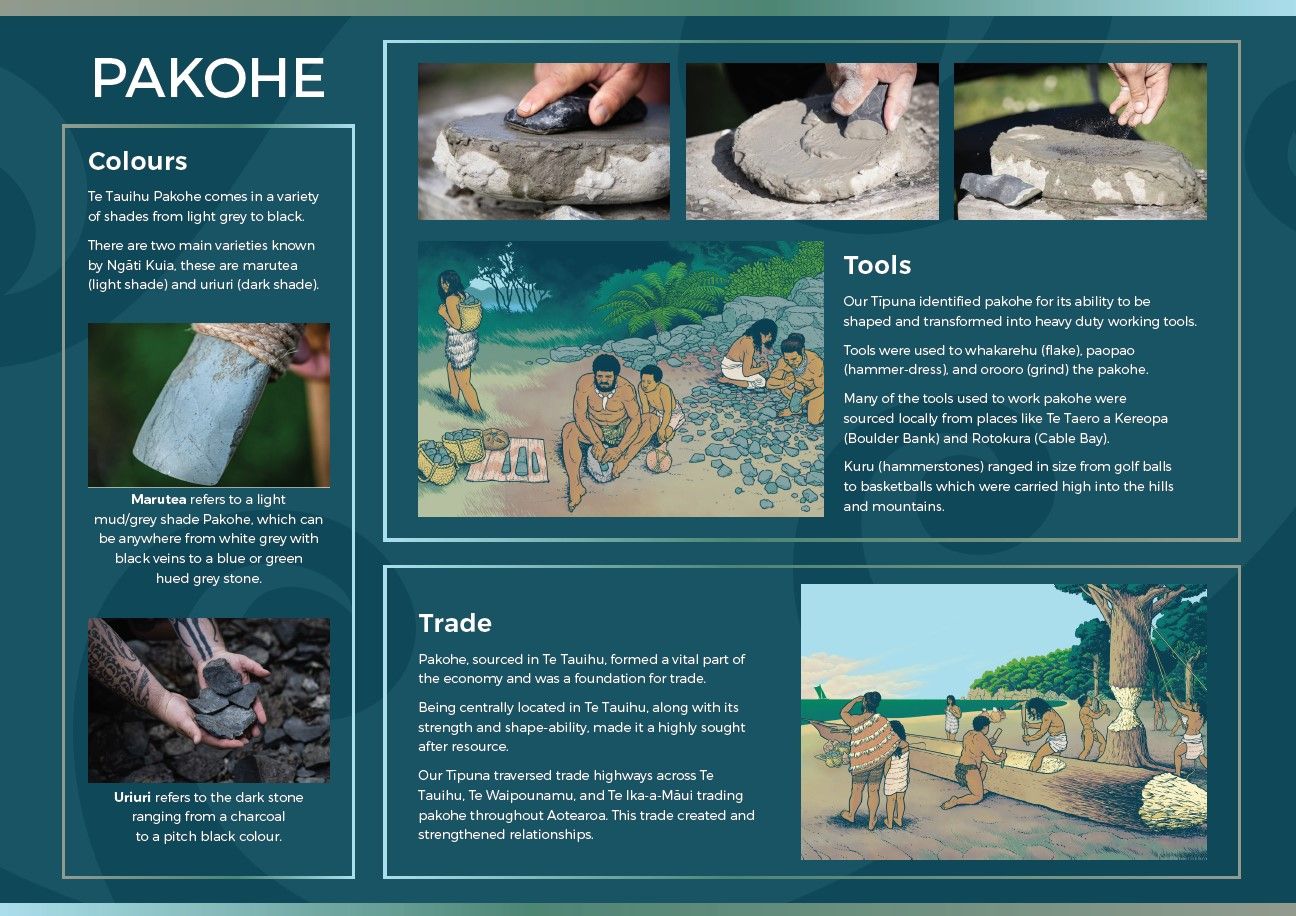Pakohe
Pakohe (metasomatised argillite) has been used by our Ngāti Kuia tīpuna for centuries in the production of tools such as toki (adzes), whao (chisels) and māripi (knives), revered for their strength and ability to hold a sharp edge. Toki Pakohe were not only prized tools but also symbols of mana.
Found in what Ngāti Kuia call Te Rohe Pakohe, the Nelson Mineral Belt, pakohe from Te Tauihu was a highly sought-after resource and key to a thriving early trade economy. It has been discovered in archaeological sites in most areas of Aotearoa. Ngāti Kuia have lived on the mineral belt for generations and have a long and continuous association with Te Rohe Pakohe as the workers and traders of this stone. Pakohe is a taonga synonymous with Ngāti Kuia and symbolises the intense nature of our relationship to the environment, and the mauri or life force contained in all parts of the natural environment and binds the spiritual and physical world.
“Pakohe has shaped our Ngāti Kuiatanga, our tribal culture. ‘He Waipounamu he maunga Pakohe,’ is a Ngāti Kuia whakataukī, for example, that speaks to that connection and the importance of these taonga. Our tīpuna had considerable knowledge of the places for gathering pakohe and associated rocks; they were the geologists of their time. Because this was a taonga resource, certain tikanga and kawa were applied to pakohe gathering and manufacturing to ensure its sustainability. These values not only remain important to our people today but remain in use, unbroken through the generations.” Hina Moses-Te Kani.
Hina Moses-Te Kani, who was one of the Ngāti Kuia Treaty of Waitangi settlement researchers behind a push to protect pakohe as a taonga pōhatu in the late 1990s, says the modern revitalisation of pakohe had only been possible because of the work of contemporary pakohe workers and artists to uphold the associated mātauranga and tikanga. “We acknowledge all those who have gone before us to keep this fire burning as well as those who continue to keep this knowledge alive, people like Master Carvers Toro Frank Wells, Ruihana Smith, Fayne Robinson and Natalie Kere. There is a well-known quote from Toro Frank that I think best explains our relationship with pakohe. He was asked why pakohe was so special to him. He said: ‘Because we are te Iwi Pakohe, it is us.’”
Pakohe Management Plan
This was developed by Te Rūnanga o Ngāti Kuia, in partnership with Marlborough District Council, Nelson City Council, Tasman District Council, and the Department of Conservation. It provides a framework to ensure the protection, sustainable management, and ongoing cultural use of Pakohe for present and future generations.
This document guides te mahi tiaki taiao by outlining:
- The history and whakapapa of Ngāti Kuia as Te Iwi Pakohe
- Legal and environmental responsibilities around wāhi tīpuna (archaeological sites) and wāhi Pakohe (naturally occurring deposits)
- Customary practices, education, and future aspirations for Pakohe
- Policies and methods for protection, management, and sustainable use
Pakohe Karakia

Pakohe Workshop
Ka hoki mahara